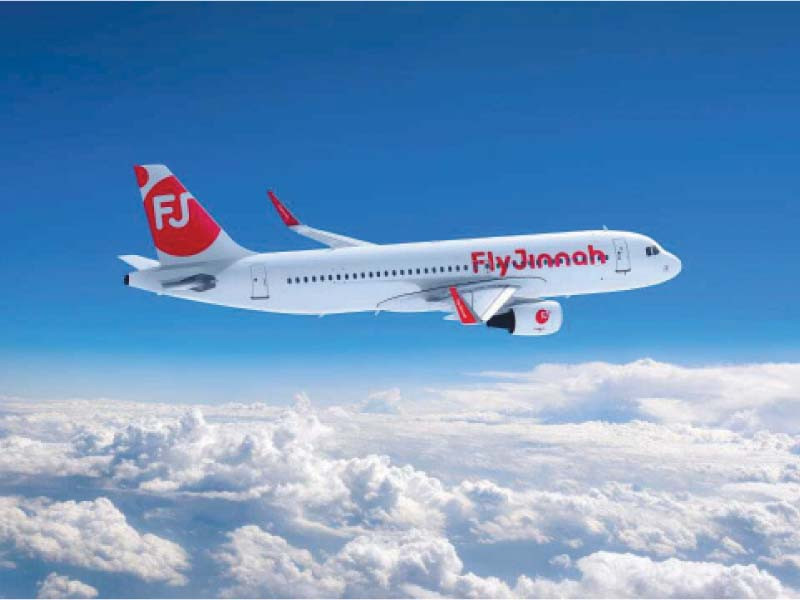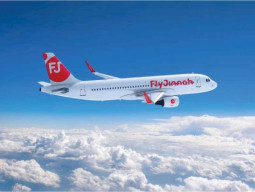
Fly Jinnah, Pakistan’s new low-cost carrier, on Wednesday announced the graduation of its first batch as cabin crew in their brand-new uniform, who successfully completed their technical and customer experience training.
According to a statement, the first batch of Fly Jinnah consisted of 13 cabin crew members who graduated after the completion of an extensive initial and practical course and training which was delivered by cabin crew instructors and learning and development professionals.
Fly Jinnah is currently in an advanced stage of training more cabin crew batches to support the launch of the airline’s operations.
Read more: Pakistan’s low-cost Fly Jinnah airline unveils brand identity
In March, Fly Jinnah revealed its visual brand identity. Fly Jinnah’s’ brand identity, with its brand name abbreviation ‘FJ’, has adopted the vibrant red as its main colour to reflect the young and modern spirit of the airline while the logo and brand identity consisting of its unique font and round-shaped symbol reflects motion and continuity.
Its brand values are Ambition – offering customers true value and connecting communities across the globe; Sincerity – honesty and willingness to achieve and grow while striving to improve; and Inventiveness – crafting creative solutions while remaining focused, practical, and efficient.
Inspired by the logo and the brand ethos, ‘Fly Jinnah’s’ aircraft livery reflects a modern airline that is aspiring, energetic, and constantly on the move.
In short, ‘Fly Jinnah’ is a Pakistani private joint venture low-cost airline. Based in Karachi, Fly Jinnah follows the successful low-cost business model operated by Air Arabia that focuses on offering comfort, reliability, and value-for-money air travel.
Air transport supports over 30 million jobs and $684 billion in GDP in Asia and Pacific alone. Countries in Asia and Subcontinent are focusing on aviation as a catalyst for economic growth, supporting domestic and international connectivity, while contributing immensely to local employment.
Joint ventures in aviation have proven to be successful globally and are increasingly commonplace. A typical JV model is for a parent airline group to have a minority share while local owners hold a majority share, marrying together local knowledge and world-class aviation expertise.
Also read: Govt eases aviation policy terms
Almost all countries in the world follow the same policy of FDI in aviation that would permit up to 49 per cent foreign ownership. JVs provide significant social benefit to human capital through knowledge transfer and the development of local talents, by bringing in international experience, know-how, and training standards, into the local market.
Lakson Group and Air Arabia Group announced their decision to form a JV airline in Pakistan in September 2021. Fly Jinnah will follow the low-cost business model and provide its customer base with a reliable operation and value-driven product. More details about the launch date, fleet, and destination network will be announced in due course.

1729137363-0/Liam-Payne-fans-(1)1729137363-0-165x106.webp)



1731062031-0/Express-Tribune--(5)1731062031-0-270x192.webp)
1731065030-0/Untitled-design-(26)1731065030-0-270x192.webp)


1731057827-0/Untitled-design-(25)1731057827-0-270x192.webp)
1731054442-0/BeFunk_§_]-(53)1731054442-0.jpg)









COMMENTS (6)
Comments are moderated and generally will be posted if they are on-topic and not abusive.
For more information, please see our Comments FAQ